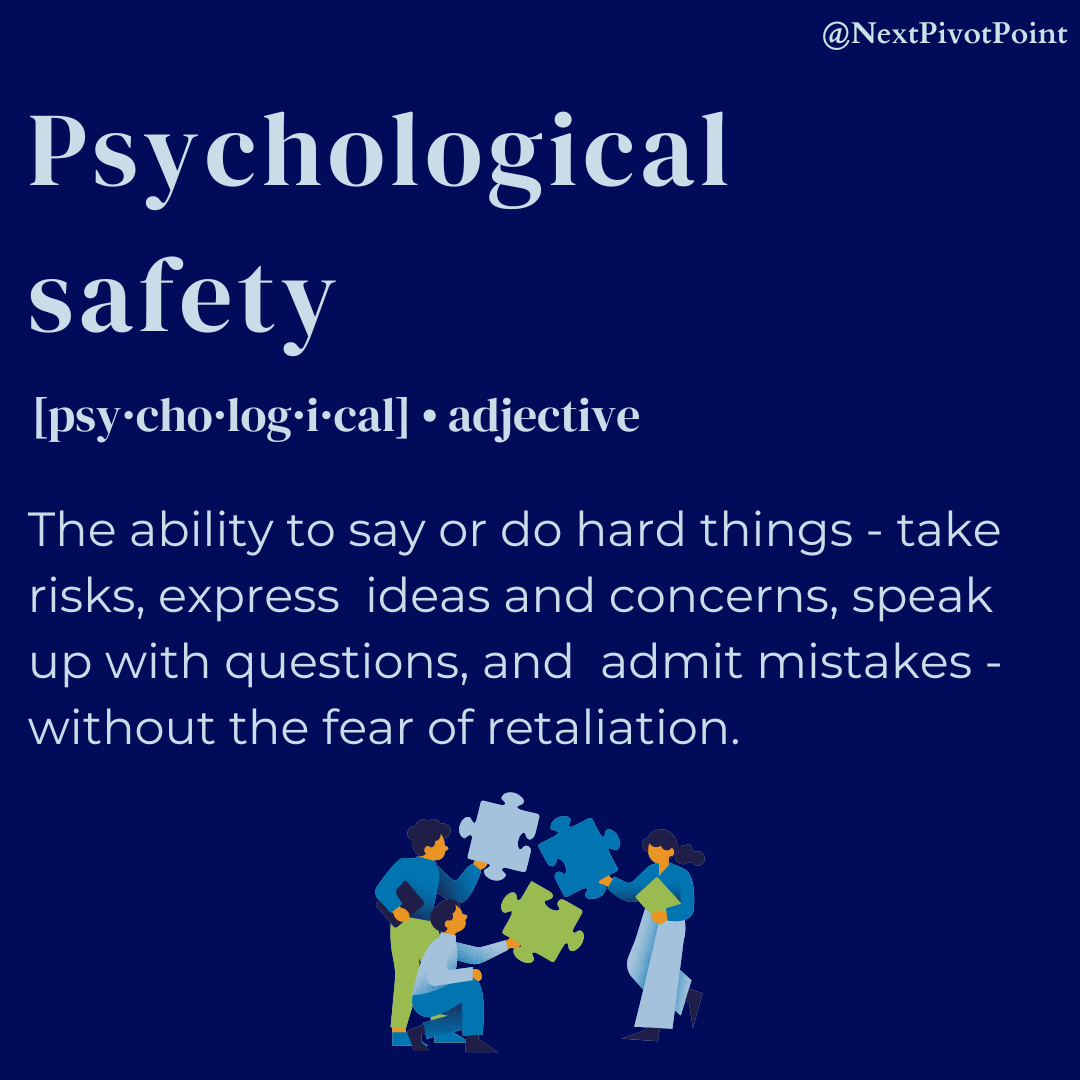Psychological Safety is a top attribute of high-performing teams yet there is a growing disconnect between leaders and their employees
Psychological safety, defined simply, is the ability to say or do hard things without the fear of retaliation at work. In a competitive labor market, it is a must-have, not a nice-to-have. As Google found in their Project Aristotle study, psychological safety was the top attribute of high-performing teams.
New research supports the need for more psychological safety
New research from Wiley found that leaders tend to overestimate psychological safety on their teams compared to their team members. According to an interview with Mark Scullard, senior director of product innovation at Wiley, “at its core, psychological safety is about feeling valued.”
Wiley’s research also found that 89% of executives agree that their unique skills and talents are valued on their teams. Comparatively, 82% of team members agree they are valued. Yet, when you dig deeper into the behaviors that are associated with psychological safety, there is a disconnect between perceptions and reality. Individual contributors rated psychological-safety factors eight to twelve percentage points lower than their leaders, indicating discomfort around bringing up tough issues at work. Specifically, when you unpack the attributes of psychological safety:
- 42% of managers feel psychologically safe compared to 57% of executives
- 40% of leaders agreed that if they made a mistake, it would be held against them
- 53% of employees feel safe to take a risk versus 76% of executives
- 68% of employees agreed that no one on their teams would deliberately undermine them
Scullard recommends that leaders proactively look for….
Read the rest of this article by Julie Kratz on Forbes.com
At Next Pivot Point we have lots of resources to help you facilitate successful diversity and inclusion initiatives. Schedule some time with our team today to discuss where to start or how to do better. You can also check out:
- Our available workshop topics for developing inclusive leaders.
- Our Train the Trainer programs for scalability within your organization
- Our Right-Sized DEI micro-content packages for consistent small-drip content throughout the year.

